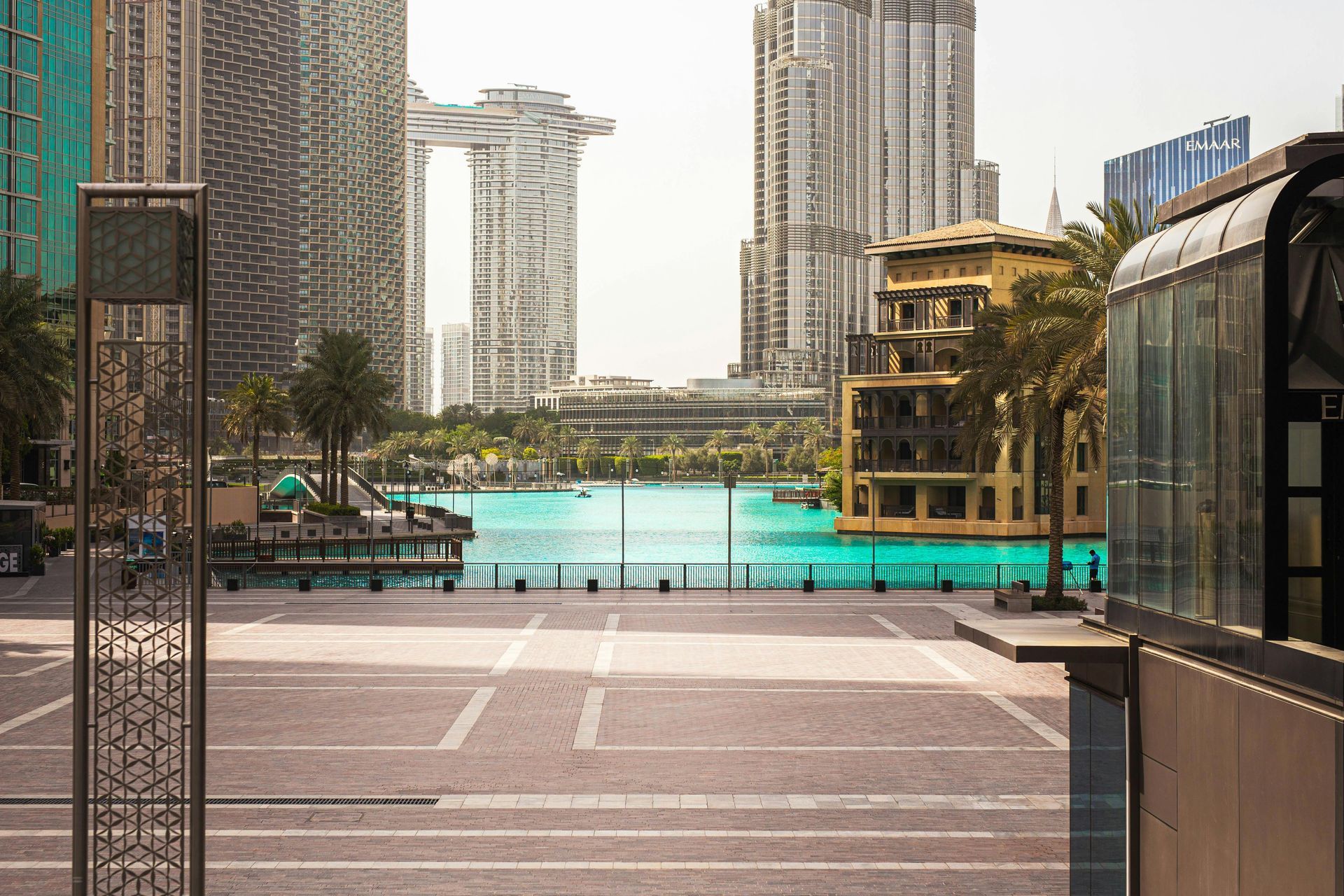UAE to Introduce 15% Minimum Tax for Large Multinationals in 2025
Amie Roberts • May 8, 2025
Starting from January 1, 2025, the UAE will implement a 15% Domestic Minimum Top-Up Tax (DMTT)

The UAE Ministry of Finance has announced a major policy shift that will affect large multinational corporations operating in the country.
Contact us
Starting from January 1, 2025, the UAE will implement a 15% Domestic Minimum Top-Up Tax (DMTT) for multinational enterprise (MNE) groups with global revenues exceeding €750 million.
This move brings the UAE into alignment with the OECD's global minimum tax framework and signals a clear intent to strengthen its standing as a responsible international tax jurisdiction.
What Is the 15% DMTT?
The Domestic Minimum Top-Up Tax is a new concept introduced under the OECD's Pillar Two rules.
It ensures that large multinationals pay at least a 15% effective tax rate on their profits, regardless of where those profits are booked.
The goal is to reduce tax base erosion and profit shifting to low- or no-tax jurisdictions.
Who Will Be Affected?
The DMTT will apply to MNE groups that meet the following criteria:
- Have consolidated global revenues of €750 million or more in at least two of the four preceding financial years.
- Operate entities within the UAE.
These businesses will be required to calculate their effective tax rate in the UAE and, if it falls below 15%, pay the difference.
Why Is the UAE Implementing This?
The UAE has traditionally been seen as a low-tax environment, which has contributed to its appeal as a regional headquarters hub.
However, as international pressure grows for tax transparency and fairness, the UAE is aligning with global standards to:
- Maintain its reputation among international investors
- Avoid the risk of other countries imposing their own top-up taxes on UAE-based profits
- Prepare the economy for long-term resilience beyond oil revenues
What Should Affected Businesses Do?
Review Global Structures: Companies should analyse how profits are currently reported and whether their effective tax rates fall below the 15% threshold.
Evaluate Substance and Transfer Pricing: Entities must demonstrate economic substance in the UAE, with accurate documentation to support intercompany transactions.
Update Forecasts and Budgets: Financial models and tax projections for 2025 and beyond should incorporate the impact of DMTT.
What about Freezones?
While some activities in free zones can enjoy preferential tax rates, the new DMTT will still apply to MNE groups even if their UAE entities are in free zones, depending on group size and financial structure.
Conclusion
This new tax regime is a significant development in the UAE's fiscal policy.
While it only targets the largest multinational groups, it reflects the broader shift towards responsible taxation and transparency.
Final Thoughts
If your business is part of a multinational group operating in the UAE, now is the time to prepare for the DMTT.
We provide practical guidance on corporate tax structuring, economic substance, and global tax alignment. Whether you’re a group CFO or a professional adviser supporting one, we welcome the opportunity to work with you.

Navigating the UAE Employment Visa Process in 2026 Relocating to the United Arab Emirates for employment offers significant professional and financial opportunities. However, the UAE employment visa process is structured, compliance-driven and time sensitive. Understanding each stage in advance avoids unnecessary delays and protects both employer and employee from regulatory issues. Below is a comprehensive, easy-to-follow guide to the UAE employment visa process as it stands in 2026. Step 1: Securing a Confirmed Job Offer The UAE employment visa process begins with a formal job offer from a UAE-licensed entity. Only an employer registered with the relevant mainland authority or free zone authority can sponsor an employee. The employer becomes the visa sponsor and assumes legal responsibility for: Applying for the work permit Processing the residence visa Ensuring compliance with UAE labour law Covering government application fees (in most cases) Employees cannot independently apply for a standard employment visa without sponsorship. Step 2: Work Permit Application (Entry Permit Approval) Once the employment contract is signed, the employer applies for a work permit (also known as a labour approval) through the Ministry of Human Resources and Emiratisation (MOHRE) or the relevant free zone authority. Documents typically required include: Passport copy (valid for at least six months) Passport-size photographs Signed employment contract Attested educational certificates (if required for the role) If the employee is outside the UAE, an entry permit is issued, allowing them to enter the country legally for employment purposes. If the employee is already inside the UAE on a visit visa, status adjustment procedures apply. Step 3: Entry to the UAE (If Applying From Abroad) For applicants outside the UAE, the entry permit allows legal entry into the country. Once inside the UAE, the individual must complete the residency formalities within the validity period of the entry permit (usually 60 days). Timing is critical at this stage. Failure to complete the process within the permitted window may result in fines. Step 4: Medical Fitness Test All employment visa applicants must undergo a mandatory medical examination at an approved UAE medical centre. The test typically screens for: HIV Tuberculosis Hepatitis (in certain categories) The medical fitness certificate is a mandatory component of the residence visa application. Processing time: usually 24–72 hours depending on service speed selected. Step 5: Emirates ID Biometrics The applicant must apply for an Emirates ID, which serves as the UAE’s official identification card. This process includes: Biometric data capture (fingerprints and photograph) Identity verification The Emirates ID is linked directly to the residence visa and is essential for: Opening bank accounts Renting property Obtaining a driving licence Accessing utilities and telecom services Step 6: Residence Visa Stamping Following medical clearance and Emirates ID application, the residence visa is issued and stamped electronically against the passport record. Employment residence visas are typically valid for: 2 years (mainland companies) 2–3 years (depending on free zone authority) Once issued, the employee is legally resident in the UAE and may sponsor eligible dependants (subject to salary thresholds). Key Considerations in 2026 1. Free Zone vs Mainland Sponsorship Visa procedures differ slightly between mainland entities and free zone authorities. Free zones operate under independent regulatory frameworks, although federal immigration approval remains central. The choice between mainland and free zone employment has broader implications, including: Corporate structuring Tax residency status Social security considerations Family sponsorship options These should be assessed before finalising relocation plans. 2. Employment Visa vs Other UAE Visa Categories The UAE also offers: Green Visas (for skilled professionals and freelancers) Golden Visas (long-term residence for investors and high earners) Investor/Partner Visas For entrepreneurs and senior executives, an employment visa is not always the optimal route. Strategic structuring may offer longer validity and greater flexibility. 3. Tax Residency Implications The UAE does not levy personal income tax. However, relocating professionals must consider: Exit tax implications in their home country UK Statutory Residence Test (for British nationals) Split-year treatment Ongoing ties and centre-of-vital-interests rules Corporate tax exposure for business owners Inadequate pre-departure planning can result in unintended dual tax exposure. 4. Corporate Tax and Employment Structuring With the introduction of UAE Corporate Tax, business owners relocating to the UAE must assess: Whether they will remain directors of overseas entities Permanent establishment risks Substance requirements Intercompany arrangements Employment structuring must align with the broader corporate and tax strategy. Why a Structured Relocation Approach Matters Many professionals treat the employment visa as a simple administrative formality. In practice, it forms part of a much larger relocation framework that includes: Tax residency planning Wealth structuring Asset protection Banking arrangements Property acquisition Family visa coordination A piecemeal approach often creates long-term complications. How Mosaic Chambers Group Supports Your Move to the UAE At Mosaic Chambers Group, we provide integrated advisory services for internationally mobile individuals and entrepreneurs. We coordinate: Pre-departure UK tax planning UAE tax structuring advice Cross-border compliance Local regulatory compliance We work alongside trusted UAE-based partners to manage: Visa processing Company formation Corporate structuring analysis Family sponsorship applications Wealth protection strategies Relocating to the UAE should be strategic, compliant and financially efficient - not reactive. Speak to Our Advisory Team If you are considering accepting a UAE job offer or relocating your business operations to the Emirates, we recommend obtaining professional tax and structuring advice before finalising your move. Early planning protects your position, reduces risk and ensures your move to the UAE is commercially sound and fully compliant. Get in touch with our team today to begin your relocation strategy with clarity and confidence.

Thinking about moving to Dubai with your family?
We can help you assess eligibility, model the impact, and prepare a clear roadmap before you move.
Contact us to begin a confidential discussion.
Tailored advice for UK families, entrepreneurs, business owners and private wealth structures.
Cross‑border, multi‑jurisdict
